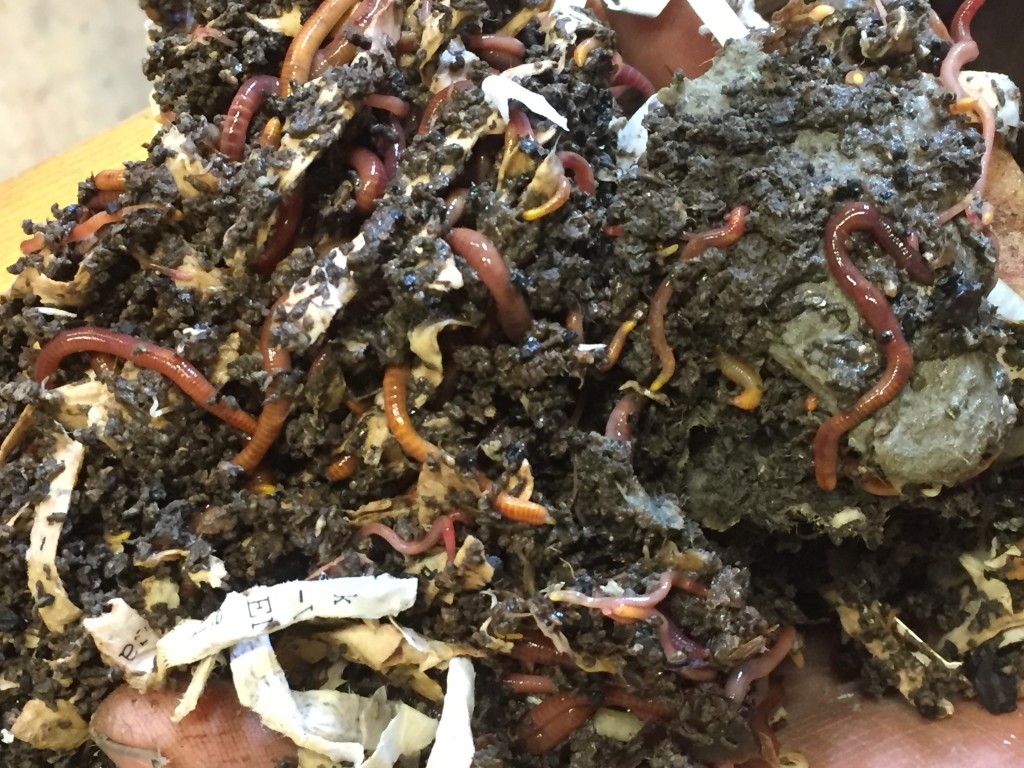Some Ideas on Red Wiggler Express You Need To Know
Some Ideas on Red Wiggler Express You Need To Know
Blog Article
Get This Report on Red Wiggler Express
Table of ContentsA Biased View of Red Wiggler ExpressRed Wiggler Express - QuestionsThe Best Strategy To Use For Red Wiggler ExpressThe 5-Minute Rule for Red Wiggler Express8 Easy Facts About Red Wiggler Express Shown
And the thriving Red Worm population? Also in the lot that was set up directly in front of backyard composters with existing Red Worm colonies.
Numerous ranges, consisting of Red Wigglers, European Nightcrawlers, and Lumbricus varieties were brought over from the European continent. Here's the thingNative or not - and as skilled as they are at being able to endure in a wide-range of atmospheres and problems -. In various other words, they are much more most likely to hang around in any kind of energetic composting systems you have actually established up, than they are to stroll off and begin ruining the atmosphere.
Roots require oxygen for respiration and count on smooth air flow within the dirt to thrive. However, when it rains, dirt can come to be saturated with water, minimizing the oxygen offered and impeding nutrient absorption - Red Wiggler Express. To maintain an optimal balance, the dirt should allow water to drain pipes effectively, leaving sufficient space for air to sustain origin health
The Best Guide To Red Wiggler Express

When it involves worms for composting, what comes to mind? If you were an earthworm breeder, dealership, or ordinary garden enthusiast, then you 'd understand that red wiggler worms are the ideal worms for vermicomposting. To discover more about these earth wonders, checked out several of the red worm realities listed below.
(https://directdirectory.org/details.php?id=353260)If they extend their bodies, you'll be able to see the red stripes on their skin. When increasing worms such as red wiggler worms, you must have the ability to know how to profit them. When you're able to maintain and look after their habitat well, and also feed them the right sort of organic wastes, then they'll be able to generate nutrient-packed and quality-rich worm spreadings for you (additionally referred to as worm poop or garden compost).
The Ultimate Guide To Red Wiggler Express
What do worms eat? Well, these red wriggler worms can be fed with kitchen area scraps and garden wastes.

This habits makes them appropriate for life in worm bins, garden compost heaps, and various other constrained spaces where organic waste is bountiful. Producing an optimum setting for red wigglers calls for a thoughtful technique. Think about the following important elements to look after red wigglers in the house and guarantee their wellness: Utilize a bedding of shredded newspaper or cardboard.

Red wiggler worms recreate by laying little, lemon-shaped eggs in protective cocoons. These cocoons are normally deposited in the bed linen and hatch into child worms within a few weeks.
The Red Wiggler Express Diaries
Their versatility and strength have actually made them a prominent choice for vermicomposting in numerous regions all over the world. Yes! They can make it through from a variety of 32F to 90F. They are incredibly adaptable animals. Think about safety steps for very extreme temperature levels such as: Shielding the worm bin with layers of straw or leaves.

When looking after your red wigglers it's crucial to keep in mind to: 1) K.I.S.S (Keep it Simple) and 2) everything in small amounts. These policies apply to feeding your compost worms, sprinkling your worm containers, and practically everything else entailed in looking after them. Simply remember - you can constantly include more food later (yet it's difficult to get rid of feed once it's been included in a bin!).
Due to the fact that I fed the red wigglers and compost worms also much, they weren't able to maintain up and over time the older food went uneaten and produced anaerobic problems that eliminated the worms. Below're the 6 golden rules for exactly how often and just how much to feed your worms: Guideline # 1: Small amounts!
The Red Wiggler Express Ideas
Leftover food will certainly lead to anaerobic problems that will certainly kill your live worms. Guideline # 6: After the very first feeding, feed the worms 1/3 to 1/2 of their weight.
Report this page